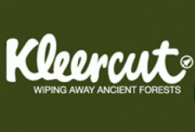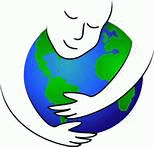
Our Earth - in more trouble than we know, but also probably more resilient than we know, thank God.
What can we do as ordinary people? A LOT.
First off, look at your daily, perhaps unconscious choices .. how do you wash? How do you wash dishes? Clothes? Your home?
Love Mother Earth
If you use earth friendly products you benefit first, because you aren’t slathering toxins on your body, on your clothes and in your home!
I wash my hands and body with plain bar soap. $1.89 at several health stpores; it’s actually a laundry bar, but it’s pure castile soap. I also use almost any bar soap from a health food store, but not liquid soaps. Even health food store liquid soaps are often toxic.
If you insist on a liquid soap go for Dr Bronner or SoapWorks; they are pure. More info on bodycare on the SkinCare page.
I wash dishes with pure lye, from my neighbourhood hardware store. Be forewarned that although lye actually improves lake water quality and is 100% non toxic when diluted, it is very caustic. Exposure to concentrated lye solution will eat away skin if not immediately and thoroughly rinsed. hence the chemical resistant gloves I use to do dishes. if you have children or are just klutzy, maybe go for a green dishwasher soap from a health store. I stick to lye, because in my opnion it is very effective and very non toxic (and cheap). I use a tablespoon in a half cup of water as my “soap”. It doesn’t sud at all, but is a serious cleanser.
I’ll assume you recycle and also that you drive as little as possible, however if you are a suburban or rural Canadian, not driving is difficult to impossible.
Speaking of recycling, reducing is even better. So shop with re-used bags and jars, use the bulk section as much as you can. Less packaged food, more bulk, more home cooking. Saves money, the environment, and it’s good for you! My butcher and fish monger now me as the "jar guy" because I have my meat and fish put directly into a huge jar, so I avoid plastic. Ask any ocean expert or garbage expert and they will tell you that garbage plastic is a heavy negative in our environment.
What can we do as ordinary people? A LOT.
First off, look at your daily, perhaps unconscious choices .. how do you wash? How do you wash dishes? Clothes? Your home?
Love Mother Earth
If you use earth friendly products you benefit first, because you aren’t slathering toxins on your body, on your clothes and in your home!
I wash my hands and body with plain bar soap. $1.89 at several health stpores; it’s actually a laundry bar, but it’s pure castile soap. I also use almost any bar soap from a health food store, but not liquid soaps. Even health food store liquid soaps are often toxic.
If you insist on a liquid soap go for Dr Bronner or SoapWorks; they are pure. More info on bodycare on the SkinCare page.
I wash dishes with pure lye, from my neighbourhood hardware store. Be forewarned that although lye actually improves lake water quality and is 100% non toxic when diluted, it is very caustic. Exposure to concentrated lye solution will eat away skin if not immediately and thoroughly rinsed. hence the chemical resistant gloves I use to do dishes. if you have children or are just klutzy, maybe go for a green dishwasher soap from a health store. I stick to lye, because in my opnion it is very effective and very non toxic (and cheap). I use a tablespoon in a half cup of water as my “soap”. It doesn’t sud at all, but is a serious cleanser.
I’ll assume you recycle and also that you drive as little as possible, however if you are a suburban or rural Canadian, not driving is difficult to impossible.
Speaking of recycling, reducing is even better. So shop with re-used bags and jars, use the bulk section as much as you can. Less packaged food, more bulk, more home cooking. Saves money, the environment, and it’s good for you! My butcher and fish monger now me as the "jar guy" because I have my meat and fish put directly into a huge jar, so I avoid plastic. Ask any ocean expert or garbage expert and they will tell you that garbage plastic is a heavy negative in our environment.
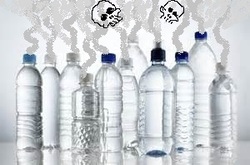
STOP BUYING BOTTLED WATER
Estimates say 2 billion litres of bottled water is sold annually. Terrible for our health and terrible for the environment! Much of that plastic ends up as landfill; plastic that is not bio-degradable. Even if it was all recycled (which is not even close to reality) it's still a colossal waste of energy and polluting, since petrochemicals are what plastics are made of, and much of the energy to make/ recycle/ dispose of it is from fossil fuels. At least buy the 18 litre recyclable jugs. Yes they are plastic, but they are used many many times in their "lifespan" before being trashed or recycled. I buy 12 litre glass jgs of water (home delivery from Cedar Springs, sourced from just north of Toronto, some of the purest water in the world, tel; 416.798.7675). Delivered right to my home. $10 deposit is all Cedar Springs asks, along with a promise that you'll give them back! When I get a chance, I use those same glass jugs to refill fro free when I visit my cousin, who lives kind of near Cedar Springs up north who has a well. I LOVE well water, it's great! Another earth-friendly option is to consume tap water. I would recommend getting a reverse osmosis filter system and then adding a few drops of trace minerals back into your water, like Concentrace, which is an excellent product sold in Canadian health stores, from Utah.
As another example of reducing waste, I bring jars for my food to places I often shop at, like 4 Life Foods, Sanagan’s meats, and Domenic’s fish shop; by now they are used to me and my unusual request . I am reducing the senseless amount of plastics we discard, as a society. My bulk foods, meat and fish goes right into a jar, no wrap, no plastic, no bag. Those fave shops of mine and much more is mentioned on my Anthony's Toronto Picks page.
4 Life Foods and Sanagan's go out of their way to carry locally grown food and I appreciate that.
About local, buying as close to home is not only healthy and safer usually, it is also less polluting to transport shorter distances. I am perfectly willing to pay more to support a more local economy. Local is sometimes cheaper as well; bonus :-)
Estimates say 2 billion litres of bottled water is sold annually. Terrible for our health and terrible for the environment! Much of that plastic ends up as landfill; plastic that is not bio-degradable. Even if it was all recycled (which is not even close to reality) it's still a colossal waste of energy and polluting, since petrochemicals are what plastics are made of, and much of the energy to make/ recycle/ dispose of it is from fossil fuels. At least buy the 18 litre recyclable jugs. Yes they are plastic, but they are used many many times in their "lifespan" before being trashed or recycled. I buy 12 litre glass jgs of water (home delivery from Cedar Springs, sourced from just north of Toronto, some of the purest water in the world, tel; 416.798.7675). Delivered right to my home. $10 deposit is all Cedar Springs asks, along with a promise that you'll give them back! When I get a chance, I use those same glass jugs to refill fro free when I visit my cousin, who lives kind of near Cedar Springs up north who has a well. I LOVE well water, it's great! Another earth-friendly option is to consume tap water. I would recommend getting a reverse osmosis filter system and then adding a few drops of trace minerals back into your water, like Concentrace, which is an excellent product sold in Canadian health stores, from Utah.
As another example of reducing waste, I bring jars for my food to places I often shop at, like 4 Life Foods, Sanagan’s meats, and Domenic’s fish shop; by now they are used to me and my unusual request . I am reducing the senseless amount of plastics we discard, as a society. My bulk foods, meat and fish goes right into a jar, no wrap, no plastic, no bag. Those fave shops of mine and much more is mentioned on my Anthony's Toronto Picks page.
4 Life Foods and Sanagan's go out of their way to carry locally grown food and I appreciate that.
About local, buying as close to home is not only healthy and safer usually, it is also less polluting to transport shorter distances. I am perfectly willing to pay more to support a more local economy. Local is sometimes cheaper as well; bonus :-)
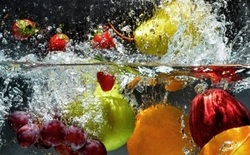
Washing produce
I want a veggie wash that is germicidal, eco-friendly, non toxic and effective. And I found it! Pure borax. I use about a tablespoon in a bowl of washing water. If I leave some residue of borax on my veggies due to careless rinsing, it's good for me. That's right, as I ingest small amounts of borax, I am providing my body with boron (chemical symbol B), an essential mineral for calcium metaboism and hormone balance, which antagonises flourine. Bonus! Do a quick youtube or internet search; lots of folks are ingesting small amounts of borax, for the boron.
In the Kitchen
Clean with baking soda, and borax. For my dishes, as described above, I use pure lye, in water. be careful with lye; even though it is non toxic, it is highly corrosive. Always be careful and use gloves, ALWAYS.
Scents; Nice smelling home
Air fresheners SUCK! They should be called Air Toxifiers. The sprinkly ones, the plug in ones the stick ones and the spray ones; they all suck; they are toxic and harmful and I would never ever use any of them. If you want nicey-nicey smelling bathrooms and kitchens, choose a natural essential oil - a few drops goes a long way! I like quite a few of them, including lemon, rosemary, pine and tea tree essential oils, and I put a few drops into my laundry too. Smells great, is actually good for you, and they are all anti-bacterial and anti-fungals. Find pure essential oils in any health store.
Laundry
Imagine you are a fish in Lake Ontario, and people from upper New York State and southern Ontario wash a lot of Tide or some other toxic garbage into your water where you live in and “breathe”. Not good. Now imagine people were using washing soda, baking soda or lye instead; no odours no chemicals no suds no phosphates ahhh clean water. Millions of people around lake Ontario, including the GTW draw their municipal water from it. Makes sense to keep it clean.
I’ve washed clothes with all of the above; baking soda, about 1 cup, or washing soda, 1/2 cup plus 2 T Borax. For extra whitening, grab a pure non toxic oxygen bleach, available in powder or liquid. I always dissolve my natural cleaner into warm water and add that to my wash. About a third to a half cup of soda or 2 tablespoons of lye does the trick. Careful with the lye, please. It’s mega corrosive and dangerous (even though well-diluted it is 100% non toxic).
I usually add in several drops of a pure essential oil into my dark laundry loads for the fresh scent and anti-bacterial effect. I'll often add lemon oil, tea tree oil, maybe some lavender, but not in my whites. Not sure if essential oils may stain my white laundry.
I want a veggie wash that is germicidal, eco-friendly, non toxic and effective. And I found it! Pure borax. I use about a tablespoon in a bowl of washing water. If I leave some residue of borax on my veggies due to careless rinsing, it's good for me. That's right, as I ingest small amounts of borax, I am providing my body with boron (chemical symbol B), an essential mineral for calcium metaboism and hormone balance, which antagonises flourine. Bonus! Do a quick youtube or internet search; lots of folks are ingesting small amounts of borax, for the boron.
In the Kitchen
Clean with baking soda, and borax. For my dishes, as described above, I use pure lye, in water. be careful with lye; even though it is non toxic, it is highly corrosive. Always be careful and use gloves, ALWAYS.
Scents; Nice smelling home
Air fresheners SUCK! They should be called Air Toxifiers. The sprinkly ones, the plug in ones the stick ones and the spray ones; they all suck; they are toxic and harmful and I would never ever use any of them. If you want nicey-nicey smelling bathrooms and kitchens, choose a natural essential oil - a few drops goes a long way! I like quite a few of them, including lemon, rosemary, pine and tea tree essential oils, and I put a few drops into my laundry too. Smells great, is actually good for you, and they are all anti-bacterial and anti-fungals. Find pure essential oils in any health store.
Laundry
Imagine you are a fish in Lake Ontario, and people from upper New York State and southern Ontario wash a lot of Tide or some other toxic garbage into your water where you live in and “breathe”. Not good. Now imagine people were using washing soda, baking soda or lye instead; no odours no chemicals no suds no phosphates ahhh clean water. Millions of people around lake Ontario, including the GTW draw their municipal water from it. Makes sense to keep it clean.
I’ve washed clothes with all of the above; baking soda, about 1 cup, or washing soda, 1/2 cup plus 2 T Borax. For extra whitening, grab a pure non toxic oxygen bleach, available in powder or liquid. I always dissolve my natural cleaner into warm water and add that to my wash. About a third to a half cup of soda or 2 tablespoons of lye does the trick. Careful with the lye, please. It’s mega corrosive and dangerous (even though well-diluted it is 100% non toxic).
I usually add in several drops of a pure essential oil into my dark laundry loads for the fresh scent and anti-bacterial effect. I'll often add lemon oil, tea tree oil, maybe some lavender, but not in my whites. Not sure if essential oils may stain my white laundry.
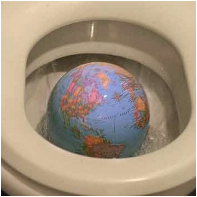
Papier de toilette
Stop buying toilet paper, tissues and paper towels
In the bathroom - did you know the average Canadian uses a roll of toilet paper every ten days? Do you know how many tress we are chopping down to wipe our bums? I don’t know how many, but it’s too many, let’s say that. Dr Mercola on his excellent website was promoting a washing toilet seat - it’s popular in Japan. The Italians are more low tech- almost everyone has a bidet. A pharmacist in Italy asked me, how do North Americans live without bidets? I answered that we shower more frequently than Italians do, however I did agree with him that using a bidet; cleaning with soap and water after using the bathroom is far more civilised and hygienic. A bathtub can substitute for a bidet. Ok, so not exactly dinner conversation, but hey 3 million rolls (30 million Canucks, times 1/10 roll per day) of paper a day used in Canada is a big deal for our forests. All that paper comes from trees, mostly. Use washable rags in your home, not paper towels. Blow your nose in the sink and wash up after. more trees, less paper.
Stop buying toilet paper, tissues and paper towels
In the bathroom - did you know the average Canadian uses a roll of toilet paper every ten days? Do you know how many tress we are chopping down to wipe our bums? I don’t know how many, but it’s too many, let’s say that. Dr Mercola on his excellent website was promoting a washing toilet seat - it’s popular in Japan. The Italians are more low tech- almost everyone has a bidet. A pharmacist in Italy asked me, how do North Americans live without bidets? I answered that we shower more frequently than Italians do, however I did agree with him that using a bidet; cleaning with soap and water after using the bathroom is far more civilised and hygienic. A bathtub can substitute for a bidet. Ok, so not exactly dinner conversation, but hey 3 million rolls (30 million Canucks, times 1/10 roll per day) of paper a day used in Canada is a big deal for our forests. All that paper comes from trees, mostly. Use washable rags in your home, not paper towels. Blow your nose in the sink and wash up after. more trees, less paper.
